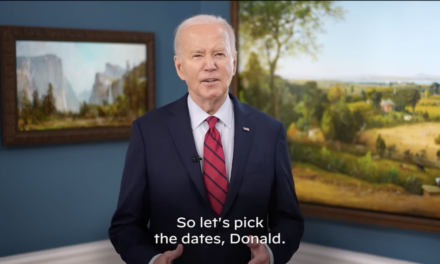We support our Publishers and Content Creators. You can view this story on their website by CLICKING HERE.
Not enough Americans are taking adequate measures to cultivate better health, and those who are seem to expect novel medical injections to do the heavy lifting for them.
A December YouGov survey found roughly 1 in 5 Americans have resolved to improve their physical health and either exercise more and/or eat healthier this year. A separate survey found a quarter plan to take Ozempic or some other kind of weight-loss drug akin to medically induced anorexia to reach their weight-loss goals.
The use of pharmaceutical interventions and significant lifestyle changes are not mutually exclusive. In fact, the latter are imposed on those who take the former for any responsible weight loss regimen. But a deeper look at how Americans feel about each reveal a new paradigm taking over the modern medical system that will be hard to shake in any effort to make America healthy again.
According to the November questionnaire from Tebra, a digital health care firm, 66 percent of the 1,012 surveyed believe “GLP-1 medications are more effective than traditional methods like diet and exercise.” The drugs’ high costs, and not their side effects, were cited as the largest concerns among those interested in them. Potential consequences include nausea, diarrhea, stomach pain, vomiting, and constipation ranging from mild to severe. The medication has also reportedly led to a spike in emergency room visits, with patients suffering blurred vision, pancreatitis, malnutrition, and drooping faces. Eighty-six percent of those surveyed by Tebra, however, said the risks were worth the benefits. Almost 1 in 4 of those already on the medications were using them without guidance from a medical professional, and nearly half reported experiencing side effects.
The Ozempic craze also happens to be led by Gen Z, with 37 percent of those surveyed planning to embrace the medications compared to 23 percent of Millennials, 24 percent of Gen X, and 30 percent of Baby Boomers.
The Tebra survey finding Americans are likelier to gravitate towards new weight-loss drugs over lifestyle interventions is not an outlier. A study published last year from the Pew Research Center based on more than 10,000 U.S. adults found 65 percent believe “willpower alone is usually NOT enough” to lose weight and keep it off compared to 34 percent who said otherwise. Democrats were 12 percent more likely than Republicans to be skeptical of willpower alone as powerful enough to drive weight loss, though majorities of adults in both parties were on the same side of the question.
The surveys reflect a population frustrated by popular recommendations to lose weight with all kinds of contradictory information bombarding the internet after federal nutrition guidelines have demonstrably failed the public for several consecutive generations. For decades, Americans were told to follow a low-fat, low-calorie diet only to in turn binge on high-carb and hyper-processed consumables sold to them as healthy. The end result is a nation that went from 13 percent obese in 1960 to more than 40 percent obese by 2015. Americans’ chronic health problems began to pile up too, with the nation today suffering from higher rates of diabetes, childhood asthma, and mental illness.
[READ: Americans Want To Stop Being Fat And Unhappy But Don’t Know How]
President-elect Donald Trump will confront divisions within his own administration on how to approach the American obesity epidemic after President Joe Biden issued lame-duck rules to include the GLP-1 injections under federal insurance programs. Trump’s nominee to lead the department of Health and Human Services (HHS), Robert F. Kennedy Jr., would have to approve the rules if confirmed but has been a consistent critic of the medications. Tech entrepreneur Elon Musk, however, recently revealed his use of Mounjaro and suggested on X the injections be made available at low cost to the public.
Last year, a Kaiser Family Foundation (KFF) poll found a majority of Americans believe the drugs should be covered under Medicare.

 Conservative
Conservative  Search
Search Trending
Trending Current News
Current News 





